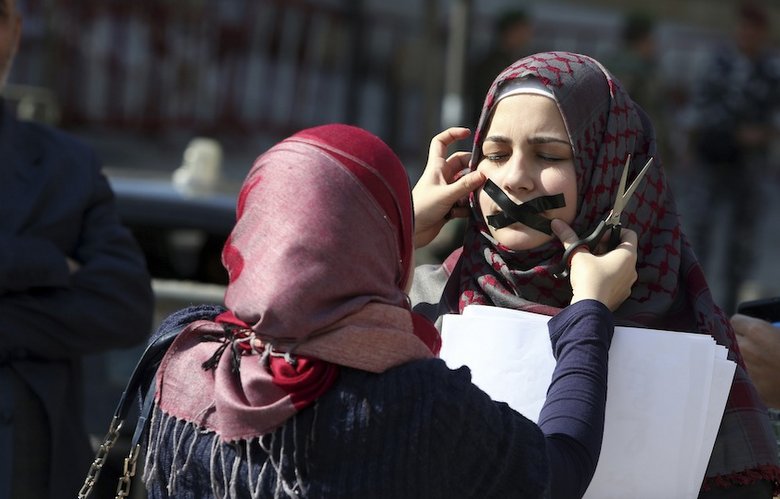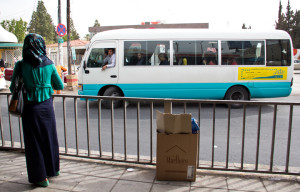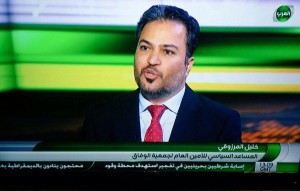 Written by Reem al-Masri
Written by Reem al-Masri
While it was only a 45 minutes talk, Joseph Massad’s lecture “Why we should not study Gender in the Arab world” triggered a discussion that lasted for 3 solid hours. Massaad was very critical of international development NGOs (INGO) rhetoric when it comes to addressing gender rights in the Middle East or Arab world. He described the INGO research and development projects that are done in the name of erasing gender injustices, as Orientalists in their nature, and as a soft form of colonialism that attempt to raise the “child” stage of the Arab world to that “adult” stage of “Western” societies.
Usually, when attempting to analyze factors playing into practices of gender injustices in the region, these organizations attribute it to the “exclusive” nature of the Arab and Muslim culture and neglect the fact that these problems exist world wide including in the advocating country. INGOs develop a discourse where the naming of these social issues is different according to its geographical locations. For example, Massad asks why isn’t there an uproar about the high rates of domestic violence and the crimes of passion in the US similar to that of crimes committed in the name of honor in Jordan although the United States ratio of crimes will beat that of Jordan when compared. He also questions the concern of INGOs with the practice of female genital mutilation in the Middle East and not with that of male mutilation. He argues that while that the act of genital mutilations is similar to females and males (taking out a part of the body without the knowledge or permission of the child), INGOs are still more concerned with the female mutilation. Massad attributes the hypocrisy and exclusive discourses of INGO to their efforts in drawing the crystal clear image of the western role model that the “child” Arab culture should grow into.
Although I agree with Massad that these social issues are not exclusive to the Arab world and exist among the “modern” as well as the “underdeveloped” countries, I was intrigued by Massad’s dismissal of the fact that gender inequalities exacerbates in manifesting itself in every aspect of the society starting with public policy and ending with the responsibilities and roles that the family assigns to men and women. While most discriminatory policies in Jordan laws came from colonial mandates and never changed since then, it should’nt mean that the maintenance of such laws cannot be attributed to some exclusive mentality and cultural conceptions of policy makers. Yes, domestic violence widely exists in the United States, but also fair laws against assaulters and murders exist. The fact that a lot of those who committed a crime in the name of honor in Jordan got away with a reduced sentence and got blessings from the family makes me truly believe that there must be deeply rooted cultural conceptions that make a judge justify a crime just because it was done in the name of “honor”.
Massad mentions that the universalization of human values and rights, makes a lot of Middle Eastern countries at the bottom of the ladder : an excuse to these NGOs to intervene. Massad fails to mention, however, that while the “West” use “gender inequality” as reason for intervention, “protecting women from western immorality” is used by Jordanian parliamentarians to justify maintaining unjust laws. “Women” are used by both, the local and the international in their power struggle as a winning bargain card.
Sometimes I wonder if some unjust laws will never disappear if it isn’t because of this external pressure to comply with international and universal laws? Although I consider myself a manifestation of an extremely cynical person when it comes to “western” development practices, one question that I find myself walking out with was how do we let the study of Orientalism blind our eyes and make us react to what happens in our back yards? How do we stop being passive critics and start looking for alternatives?









